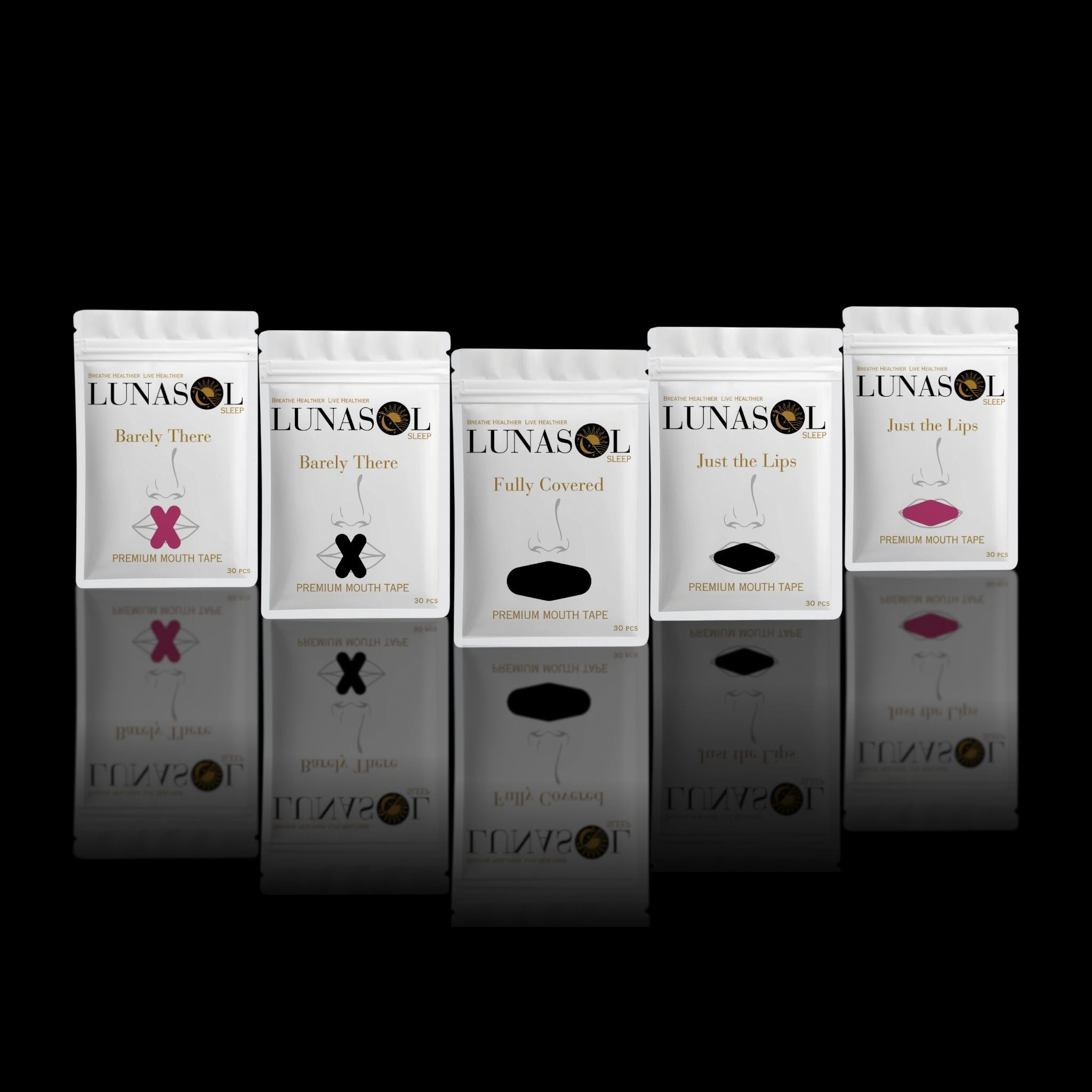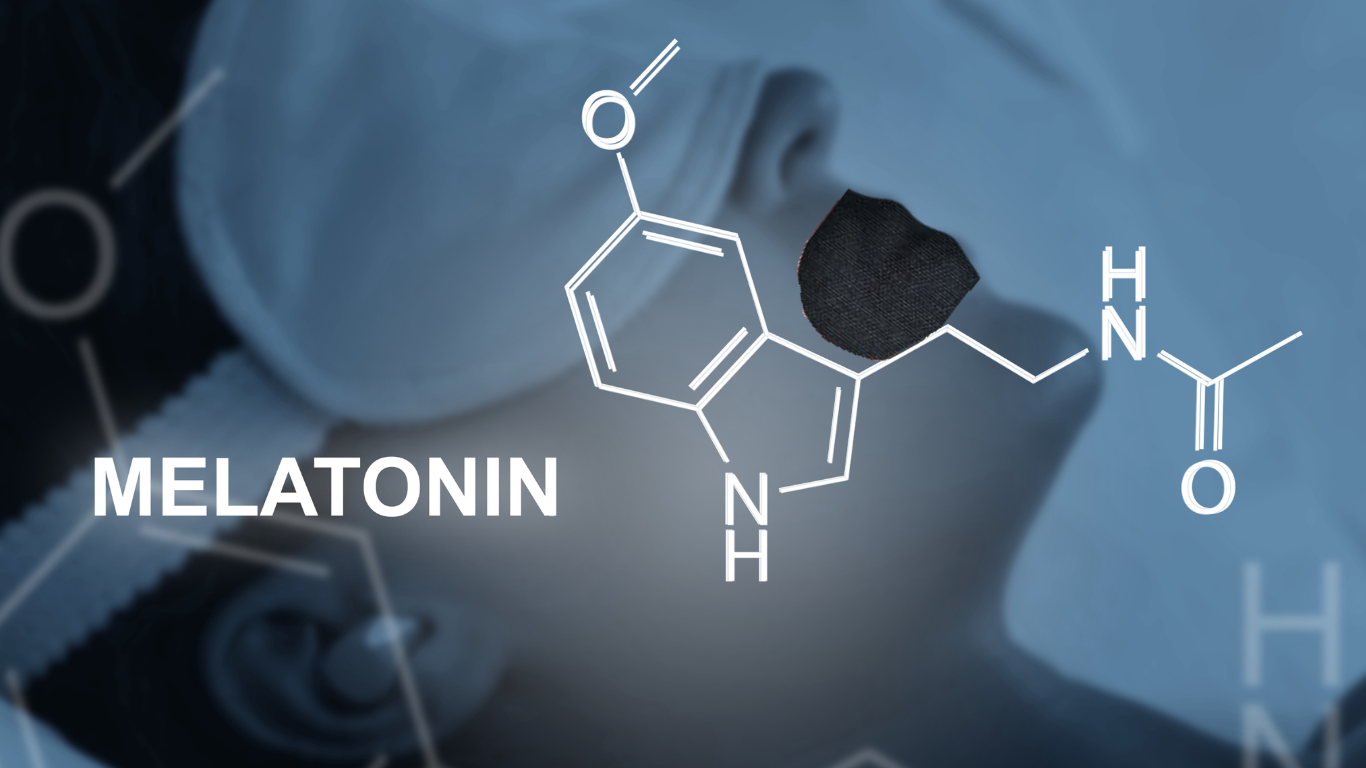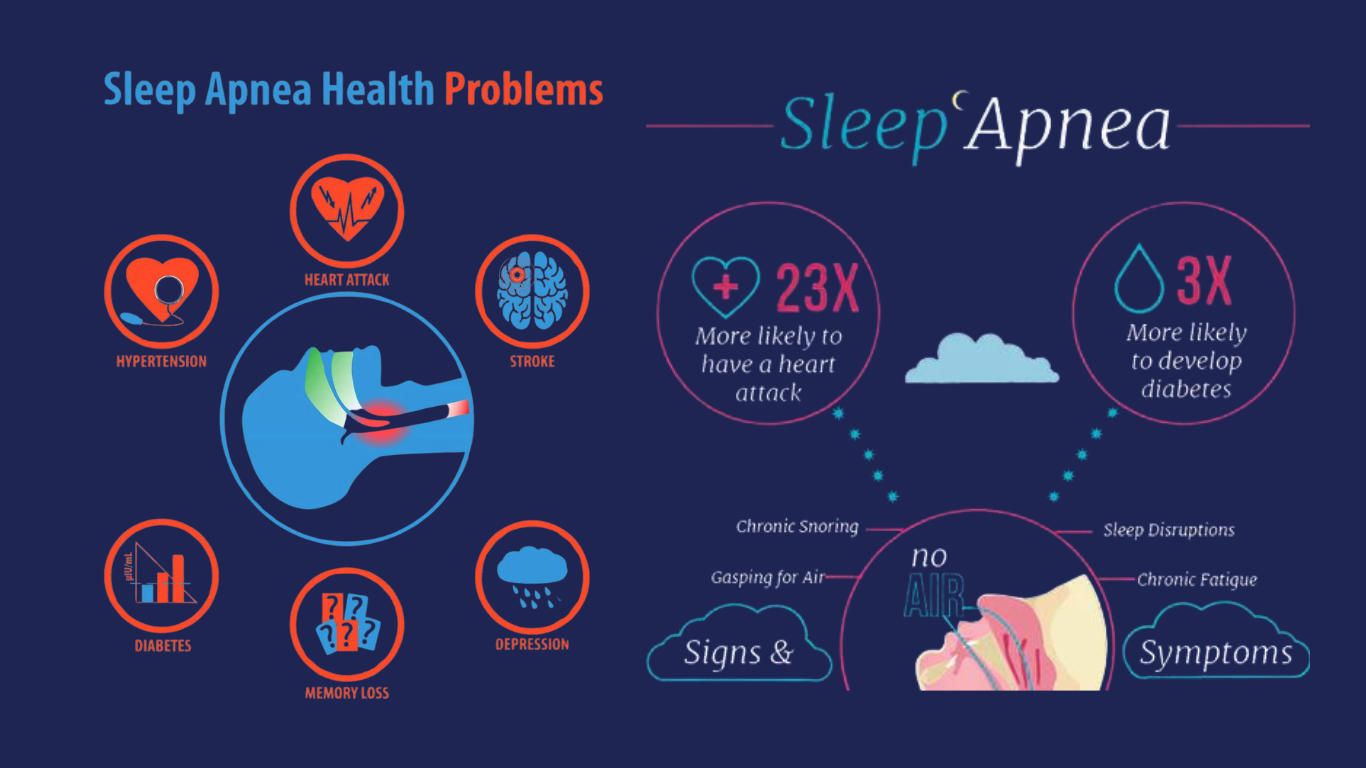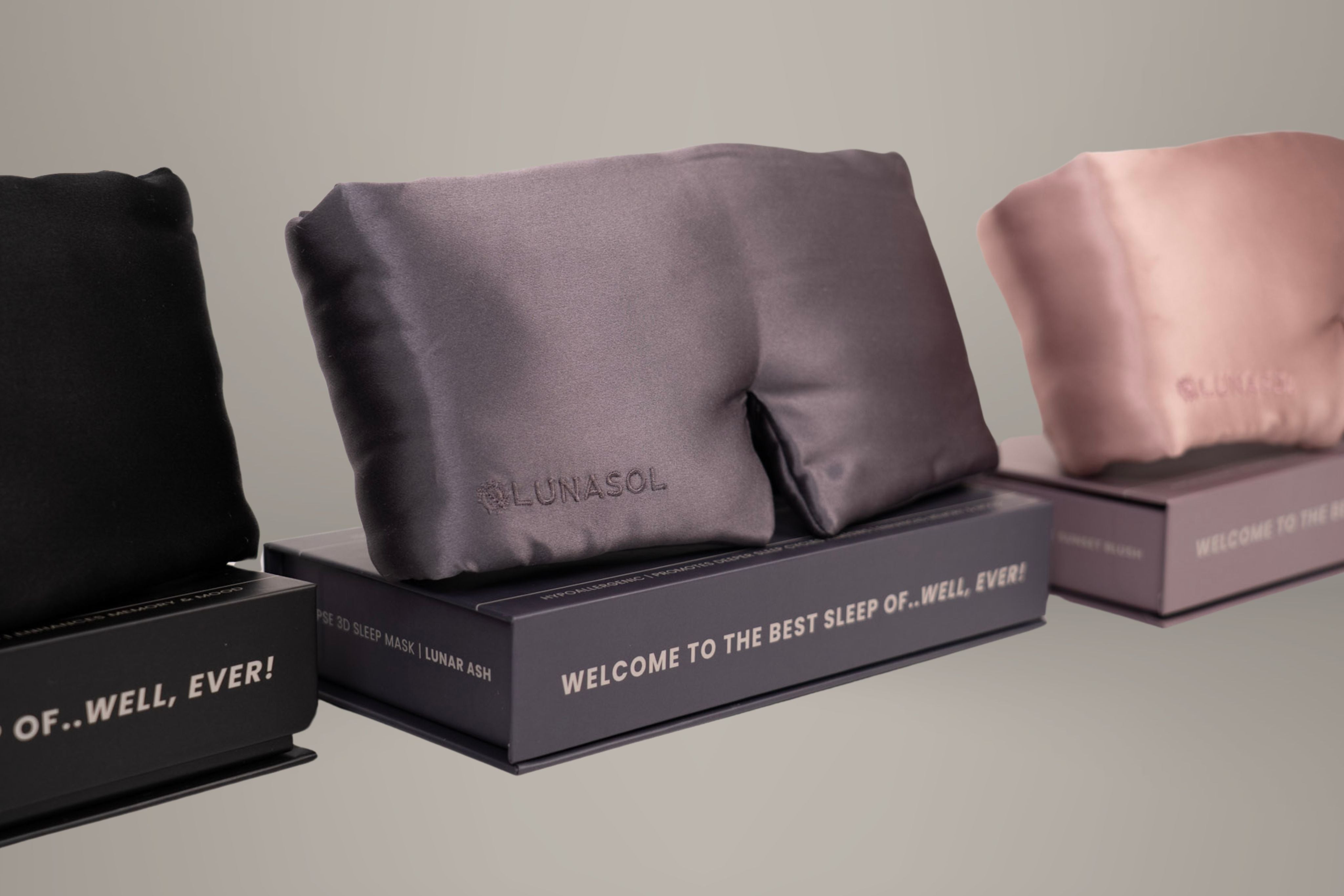Have You Ever Woken Up Feeling Like You Didn’t Sleep at All?
Even after spending eight hours in bed, or perhaps tossing and turning all night only to drag yourself through the next day in a fog, you’re not alone. In our fast-paced, always-connected world, sleep often takes a back seat to our many responsibilities. But what if I told you that sleep is as crucial to our well-being as food and water?
Sleep is more than just a passive state of rest. It’s an active and dynamic process that rejuvenates our body, sharpens our mind, and heals our soul. Understanding the importance of sleep and how to achieve quality rest can significantly enhance our health and happiness. Today, let’s explore why sleep is essential, the consequences of poor sleep, and how something as simple as using Lunasol Sleep Tape can help you achieve the deep, restorative sleep you deserve.
The Importance of Sleep
Let’s start with why sleep is so important. Sleep is like a maintenance crew that arrives every night to tidy up, repair, and prepare your body for the next day. During deep sleep stages, your body works tirelessly to repair muscles, tissues, and cells. Growth hormone is released, which aids in muscle growth and repair, bone building, and fat metabolism. This is why athletes and bodybuilders prioritize sleep as part of their training regimen.
Then there’s the impact on our brains. Sleep is crucial for cognitive processes like learning, memory, problem-solving, and creativity. During REM (Rapid Eye Movement) sleep, our brains consolidate information and experiences from the day, transferring them from short-term to long-term memory. Lack of sleep can impair these processes, leading to difficulties in learning and memory retention.
Emotional well-being is another critical area where sleep plays a vital role. Adequate sleep helps maintain the balance of hormones like cortisol and serotonin, which influence mood. Lack of sleep can lead to increased stress, anxiety, and even depression. Think back to the last time you had a rough night—chances are you were more irritable and less able to handle stress the next day.
Our immune system also benefits from a good night’s sleep. During sleep, the immune system releases cytokines, proteins that help fight infections and inflammation. Chronic sleep deprivation can weaken the immune response, making us more susceptible to illnesses. And let’s not forget about our heart. Sleep helps regulate blood pressure, heart rate, and inflammatory markers. Chronic sleep deprivation has been linked to an increased risk of heart disease, hypertension, and stroke.
Sleep also affects our metabolism and weight control. It influences hormones that regulate hunger and satiety, such as ghrelin and leptin. Poor sleep can disrupt these hormones, leading to increased appetite and weight gain. Moreover, sleep deprivation can reduce insulin sensitivity, increasing the risk of type 2 diabetes. So if you’re trying to lose weight or maintain a healthy diet, getting enough sleep should be a priority.
The Consequences of Poor Sleep
Now, let’s talk about the other side: what happens when we don’t get enough sleep or the quality of our sleep is poor. The effects can be quite alarming. Sleep deprivation can significantly impair cognitive functions. This includes reduced attention span, slower reaction times, and diminished problem-solving abilities. Chronic sleep deprivation can also lead to severe memory problems and increase the risk of neurodegenerative diseases like Alzheimer’s.
Emotionally, lack of sleep can make us more prone to mood swings, irritability, and stress. Over time, chronic sleep deprivation can contribute to mental health disorders such as anxiety and depression. And it’s not just about feeling grumpy or down. Sleep insufficiency can make us more prone to accidents. Sleep deprivation affects coordination and reaction times, leading to a higher risk of accidents, both on the road and at work. The U.S. National Highway Traffic Safety Administration estimates that drowsy driving is responsible for thousands of accidents each year.
A weakened immune system is another consequence. Without adequate sleep, our bodies are less capable of fighting off common infections like colds and flu, and recovery from illness is slower. Chronic sleep deprivation is associated with weight gain due to hormonal imbalances and increased cravings for high-calorie foods. It also raises the risk of metabolic syndrome, a cluster of conditions that increase the risk of heart disease and diabetes. Persistent sleep problems can lead to chronic hypertension, increased heart rate, and inflammation, all of which are risk factors for cardiovascular disease.
The Role of Nasal Breathing in Sleep Quality
You might be wondering how breathing fits into this picture. The way we breathe during sleep can significantly impact the quality of our rest. Nasal breathing, as opposed to mouth breathing, brings numerous benefits that contribute to deeper, more restorative sleep.
For starters, the nose acts as a natural filter, trapping dust, allergens, and pathogens, preventing them from entering the lungs. This reduces the risk of respiratory infections and allergies that can disrupt sleep. Nasal passages also humidify and warm the air before it reaches the lungs, making breathing more comfortable and reducing the risk of respiratory discomfort that can wake us up at night.
Nasal breathing promotes slower, deeper breaths, which can help reduce stress and promote relaxation, making it easier to fall asleep and stay asleep. Breathing through the nose increases the efficiency of oxygen exchange in the lungs, leading to better oxygenation of the blood and tissues. This can improve overall energy levels and health.
Nasal breathing can reduce the likelihood of snoring and sleep apnea, conditions that disrupt sleep and can have severe health consequences. Mouth breathing often leads to the relaxation of the tongue and throat muscles, increasing the risk of airway obstruction. Finally, nasal breathing stimulates the production of nitric oxide, a molecule that helps relax blood vessels, improve circulation, and boost immune function. This can contribute to better overall health and more restful sleep.
How Lunasol Sleep Tape Can Help
So, how can we ensure that we breathe through our noses while we sleep? This is where Lunasol Sleep Tape comes in. Lunasol Sleep Tape is a simple yet effective tool designed to encourage nasal breathing during sleep. By gently sealing your lips, it promotes nasal breathing, helping to unlock the numerous benefits we’ve discussed.
Using Lunasol Sleep Tape ensures that you breathe through your nose, which improves oxygen intake and promotes deeper, more restorative sleep. This can lead to waking up feeling more refreshed and energized. By keeping the mouth closed, Lunasol Sleep Tape can reduce or eliminate snoring and decrease the risk of sleep apnea. This not only improves your sleep quality but also benefits anyone who shares your sleeping space.
Mouth breathing can lead to dry mouth, bad breath, and dental issues. By promoting nasal breathing, Lunasol Sleep Tape helps maintain saliva flow, which protects the teeth and gums. Nasal breathing activates the parasympathetic nervous system, which promotes relaxation and stress reduction. This can make it easier to fall asleep and stay asleep.
With improved nasal breathing, your body can better filter pathogens and allergens, reducing the risk of respiratory infections and improving overall immune function. All these benefits combine to significantly improve your overall sleep quality, leading to better physical health, cognitive function, and emotional well-being.
Personal Stories: Real-Life Transformations
Let’s take a moment to hear from real people who have experienced the transformative effects of using Lunasol Sleep Tape. Sarah, a busy mother of three, struggled with chronic fatigue and frequent colds. She often woke up feeling tired and irritable, affecting her ability to care for her family. After learning about Lunasol Sleep Tape, she decided to give it a try. Within a few weeks, she noticed a significant improvement in her energy levels and overall health. “I wake up feeling refreshed and ready to tackle the day,” says Sarah. “I haven’t had a cold in months, and my family has noticed a big difference in my mood and energy.”
Tom, a software engineer, often found himself nodding off during meetings and struggling to focus. His wife complained about his loud snoring, which kept her awake at night. After researching solutions, Tom discovered Lunasol Sleep Tape. The results were astounding. “My snoring stopped, and I feel much more alert and productive during the day,” Tom shares. “My wife is thrilled to finally get a good night’s sleep too.”
How to Use Lunasol Sleep Tape
Using Lunasol Sleep Tape is simple and straightforward. Here’s a quick guide to get you started:
- Prepare Your Skin: Clean your face and lips to remove any oil or residue. This will help the tape adhere better.
- Apply the Tape: Gently close your lips and apply the tape horizontally over your mouth. Make sure it’s secure but not too tight.
- Comfort and Safety: Test the tape to ensure you can breathe comfortably through your nose. If you feel any discomfort or difficulty breathing, remove the tape immediately.
- Build the Habit: Use the tape consistently every night. It may take a few days to get used to the sensation, but it will soon become a natural part of your bedtime routine.
In conclusion, sleep is an essential pillar of our health and well-being. By understanding the importance of quality sleep and making simple adjustments like using Lunasol Sleep Tape to promote nasal breathing, we can unlock the full potential of our nightly rest. So, the next time you head to bed, remember: "Breathe Healthy - Live Healthy."


















